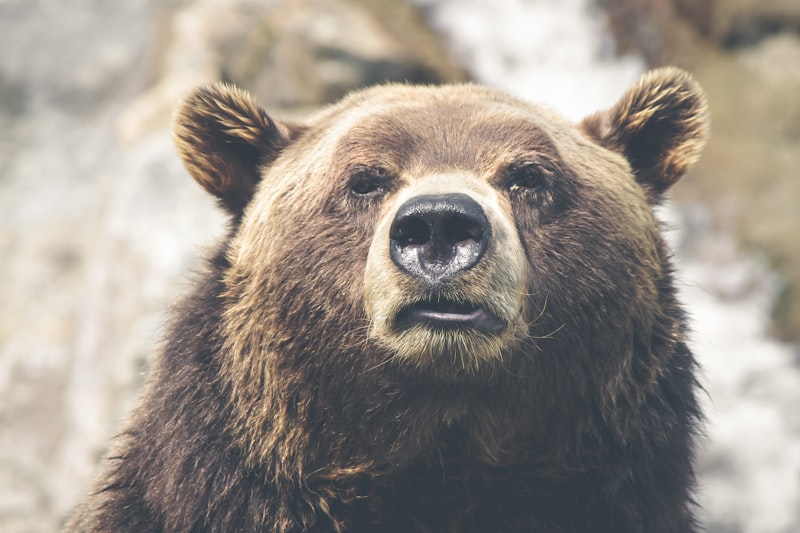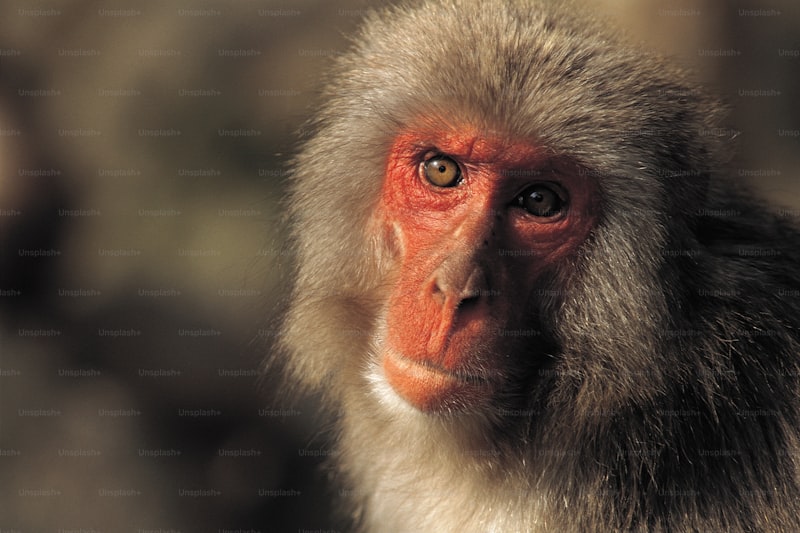Imagine our ancestors thousands of years ago, relying on animals not just for food but also for protection and companionship. These interactions were deeply rooted in survival instincts and the need for cooperation. As humans evolved, so did our genetic predispositions towards certain animals—some became domesticated partners, while others remained wild and untamed.
One of the most compelling aspects of evolutionary genetics in human-animal interactions is the concept of mutualism. This biological phenomenon suggests that both humans and animals have benefited from their associations over time. Dogs, for instance, have co-evolved with us, developing traits that align with our social structures and needs. This mutual adaptation is encoded in our DNA, reflecting a shared history of collaboration and companionship.
Furthermore, our genetic predispositions influence how we perceive and care for animals today. Studies have shown that genetic factors can shape empathy towards animals, influencing whether we see them as mere resources or sentient beings deserving of respect and compassion. This deep-seated connection is not just cultural but also biological, underscoring the intricate interplay between genetics and our attitudes towards animals.
Evolutionary genetics provides a profound lens through which to understand the complex tapestry of human-animal interactions. It reveals how our genetic heritage has shaped our relationships with animals—from survival partners in ancient times to beloved pets and conservation priorities today. By exploring these genetic underpinnings, we gain insights into the past, present, and future of our connections with the animal kingdom.
Unveiling the Genetic Roots of Human Compassion Towards Animals
Scientists have delved into the genetic roots of human compassion towards animals, uncovering remarkable insights. At the heart of this inquiry are genes that regulate empathy and social behavior. These genes, such as oxytocin and vasopressin receptors, play crucial roles not only in human interactions but also in how we perceive and treat animals.

Imagine these genes as intricate threads in a biological fabric, influencing our ability to empathize with the plight of animals around us. They enhance our sensitivity towards their emotions and needs, forging a bond that transcends mere coexistence.
Research indicates that our genetic predisposition towards compassion may have evolutionary roots. Throughout history, humans and animals have shared habitats and resources. Our survival often depended on mutual understanding and cooperation. Thus, over time, these genetic traits favoring compassion towards animals were passed down, enriching our species with empathy as a survival strategy.
Furthermore, genetics alone do not tell the entire story. Environmental factors also shape our compassionate behaviors. From childhood experiences to cultural teachings, our interactions with animals are molded by a complex interplay of nature and nurture.
In essence, our genes predispose us to feel empathy towards animals, but it is our experiences and upbringing that refine and amplify these innate tendencies. This intricate dance between genetics and environment ultimately defines how we perceive, relate to, and care for the animals that share our world.
As we unravel the genetic underpinnings of human compassion towards animals, we gain a deeper appreciation for the interconnectedness of life on Earth. It is a testament to the enduring bond between humans and animals—a bond that transcends biology and enriches our collective experience.
How Evolution Shapes Our Bond with Animals: Genetic Insights
From the earliest human societies to modern times, animals have played crucial roles in our lives. Whether as companions, sources of food, or even spiritual symbols, they’ve been intertwined with our existence. But why do we form such emotional attachments to them?
At the core of this connection lies our shared evolutionary history. Scientists believe that humans and animals have evolved together over millennia, influencing each other’s genetic makeup. This co-evolution has not only shaped their physical traits but also molded our behaviors and emotions towards them.

Take dogs, for example. Through thousands of years of domestication, they’ve not only adapted to live alongside humans but have also developed traits that appeal to us emotionally. Their loyalty, companionship, and ability to understand human gestures are all products of this evolutionary journey.
Similarly, our interactions with wild animals also reflect deep-seated genetic ties. Studies have shown that observing animals in their natural habitats can evoke primal instincts and emotional responses that are rooted in our shared ancestry. This phenomenon underscores how deeply embedded our bond with animals is within our genetic code.
Moreover, recent genetic research has shed light on specific genes that may govern our affinity for animals. These genes not only influence our emotional responses but also shape our cognitive abilities related to empathy and social bonding. In essence, they provide a biological basis for why we care for and feel connected to animals in ways that transcend mere companionship.
Genetic Variants That Influence Human-Animal Relationships Revealed
Researchers have identified specific genetic markers that correlate with traits like empathy, compassion, and even fear when it comes to interacting with animals. These genetic variants, found within certain genes related to emotional regulation and social behavior, can predispose individuals towards forming strong bonds with pets or feeling uneasy around animals.
Imagine these genetic variants as small switches in our DNA that can either amplify or dampen our responses to animals. For instance, variations in the oxytocin receptor gene have been linked to differences in how affectionate and trusting people are towards their pets. Oxytocin, often dubbed the “love hormone,” plays a crucial role in bonding and social behaviors, making these genetic findings even more intriguing.
Furthermore, genes associated with fear processing, such as the serotonin transporter gene, influence how individuals react to potentially threatening situations involving animals. This genetic insight helps explain why some individuals may exhibit a heightened fear response towards certain animals, whereas others remain calm and composed.
The implications of these genetic discoveries extend beyond mere curiosity. They provide a deeper understanding of human behavior and pave the way for more personalized approaches in animal-assisted therapies, animal behavior interventions, and even in shaping policies related to animal welfare and conservation.
As researchers continue to unravel the intricate relationship between genetics and human-animal interactions, the potential applications of this knowledge are vast. From improving animal training techniques to enhancing the well-being of both humans and animals alike, these genetic insights are opening new doors in the field of behavioral genetics and beyond.
Exploring Evolutionary Pathways: Genetics Behind Animal Empathy
Empathy, in its simplest form, is the ability to understand and share the feelings of another being. While humans often showcase empathy in various situations, such as comforting a friend in distress or feeling compassion for someone in need, animals too exhibit remarkable empathetic behaviors. This capacity isn’t just a random occurrence but has deep roots in their genetic makeup and evolutionary history.
One of the key genetic foundations of animal empathy lies in the concept of shared emotions. Research has shown that many animals, from mammals like elephants and primates to birds like crows, possess neural circuits and hormonal systems that enable them to experience and respond to the emotions of others within their social groups. These shared emotional responses are believed to have evolved as a survival mechanism, promoting cooperation, bonding, and ultimately, the survival of the species.
Take elephants, for example. These majestic creatures are known for their strong familial bonds and intricate social structures. Studies have revealed that elephants demonstrate behaviors like consoling distressed individuals, caring for injured herd members, and even mourning their dead. Such behaviors suggest a deep emotional connection within elephant herds, driven by genetic predispositions that enhance their ability to understand and react to each other’s emotional states.
In primates, including our closest relatives, such as chimpanzees and bonobos, empathy manifests in complex social interactions. These animals not only show empathy towards their kin but also towards unrelated individuals within their communities. This ability is underpinned by genetic similarities to humans, where genes associated with social behavior and emotional regulation play crucial roles.
Moreover, recent studies have delved into the genetic markers linked with empathy in various animals, revealing parallels with human genes involved in social cognition and emotional processing. These genetic insights highlight the evolutionary conservation of empathy across species and shed light on its adaptive significance in promoting social cohesion and cooperation.
Frequently Asked Questions
What genetic factors influence human empathy towards animals
Genetic factors play a significant role in influencing human empathy towards animals. These factors contribute to the emotional and cognitive processes that shape how individuals perceive and respond to animal welfare, fostering a deeper connection and concern for their well-being.
How do evolutionary genetics shape human-animal coevolution
Explore how evolutionary genetics influence the dynamic relationship between humans and animals, shaping their mutual evolution over time.
How have human behaviors towards animals evolved over time genetically
Discover how human behaviors towards animals have evolved genetically over time. Explore the genetic influences that have shaped human-animal interactions across history and understand the biological basis behind these changes.
What role does genetics play in human-animal relationships
Discover how genetics influence human-animal relationships, exploring how inherited traits and behaviors shape interactions between species.
Can genetics explain preferences for certain animal companions or interactions
FAQ Description: Learn how genetics may influence preferences for specific animal companions or interactions. Discover how inherited traits can shape our affinity towards pets and interactions with animals.


